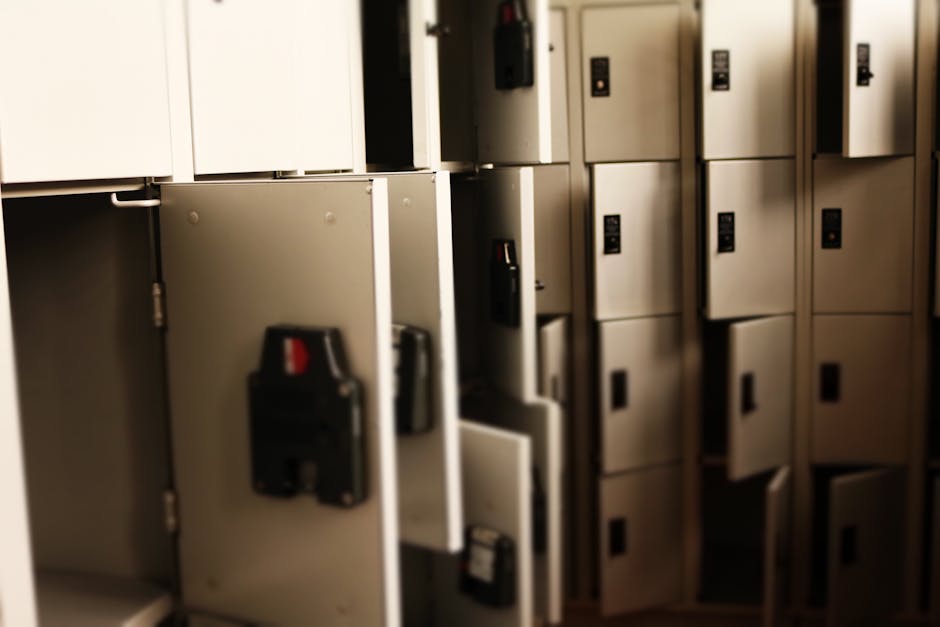Mastering Office Hoteling: Best Practices and Tips for Modern Workplaces
"As hybrid work models become the norm, office hoteling emerges as a crucial strategy for efficient workspace management. This article explores best practices and tips for implementing a successful office hoteling system, from choosing the right reservation software to creating functional spaces and maintaining clear communication with employees. "

Mastering Office Hoteling: Best Practices and Tips for Modern Workplaces
In today's dynamic work environment, hybrid work policies have become increasingly common. As organizations adapt to this new reality, office hoteling has emerged as a powerful solution for managing flexible workspaces. This article explores essential office hoteling best practices and tips to help you optimize your workplace for the hybrid era.

Understanding Office Hoteling
Office hoteling is a workspace management system that allows employees to reserve desks, meeting rooms, or other workspaces in advance. Unlike traditional assigned seating or hot desking, office hoteling provides a structured approach to flexible workspace utilization, ensuring employees have a designated spot when they come to the office.
Office Hoteling Best Practices
1. Implement a Robust Reservation System
The foundation of successful office hoteling is a user-friendly, efficient reservation system. Choose a platform that offers:
- Easy-to-use mobile and desktop interfaces
- Real-time availability updates
- Integration with calendar and communication tools
- Reporting and analytics features
A well-designed system empowers employees to book spaces effortlessly while providing administrators with valuable insights into workspace utilization.
2. Create Diverse and Functional Spaces
Design your office layout to accommodate various work styles and needs. Consider including:
- Open collaborative areas
- Quiet zones for focused work
- Meeting rooms of different sizes
- Phone booths for private calls
By offering a range of options, you can cater to different tasks and preferences, enhancing overall productivity and employee satisfaction.

3. Establish Clear Policies and Guidelines
Develop a comprehensive office hoteling policy that outlines:
- Booking procedures and time limits
- Cancellation and no-show policies
- Cleaning and sanitization protocols
- Equipment usage guidelines
Clear policies ensure fair access to resources and maintain a smooth operation of the hoteling system.
4. Prioritize Communication and Training
Effective communication is crucial when implementing office hoteling. Consider the following steps:
- Announce changes well in advance
- Provide detailed instructions on using the reservation system
- Offer training sessions for employees and managers
- Create a FAQ document to address common concerns
By keeping everyone informed and prepared, you can minimize resistance and ensure a smoother transition to the new system.
5. Leverage Technology for Seamless Integration
Integrate your office hoteling system with other workplace technologies to create a seamless experience. This may include:
- Access control systems
- Digital signage for wayfinding
- IoT sensors for occupancy monitoring
- Collaboration tools and video conferencing platforms
A well-integrated ecosystem enhances the overall workplace experience and improves efficiency.
Office Hoteling Tips for Success
1. Encourage Team Coordination
Promote collaboration by encouraging teams to coordinate their office visits. This can be facilitated through:
- Team calendars showing in-office days
- Designated team areas or neighborhoods
- Regular check-ins to discuss office presence
Coordinated schedules can maximize face-to-face interactions and strengthen team bonds.
2. Implement a Check-in/Check-out System
To optimize space utilization and prevent no-shows, consider implementing a check-in/check-out system. This can help:
- Release unused spaces for others
- Track actual usage patterns
- Identify areas for improvement in the booking process
3. Offer Personalized Storage Solutions
While office hoteling means giving up permanent desks, employees still need a place for their belongings. Provide:
- Lockers or storage units
- Digital locks for security
- Options for both daily and long-term storage
Personal storage spaces can help employees feel more comfortable and settled in a flexible environment.

4. Regular Feedback and Optimization
Continuously improve your office hoteling system by:
- Conducting regular surveys to gather employee feedback
- Analyzing usage data to identify trends and pain points
- Making iterative improvements based on insights
A data-driven approach to optimization ensures your office hoteling strategy remains effective and aligned with employee needs.
5. Foster a Culture of Flexibility and Respect
Encourage a workplace culture that embraces flexibility while respecting shared spaces. This includes:
- Promoting a clean desk policy
- Encouraging considerate behavior in shared areas
- Recognizing and rewarding positive hoteling practices
A respectful culture ensures a positive experience for all employees using the hoteling system.
Conclusion
Implementing office hoteling best practices and following these tips can significantly enhance your workplace management strategy. By providing flexible, efficient, and well-organized spaces, you can create an environment that supports the needs of your hybrid workforce while optimizing real estate costs.
Remember, successful office hoteling is an ongoing process. Regularly review and refine your approach based on employee feedback and changing workplace dynamics. With the right strategies in place, office hoteling can become a powerful tool in your workplace experience management arsenal, driving productivity, collaboration, and employee satisfaction in the modern hybrid work era.
Want to learn more about Desk Booking?
Explore our complete guide with more articles like this one.


